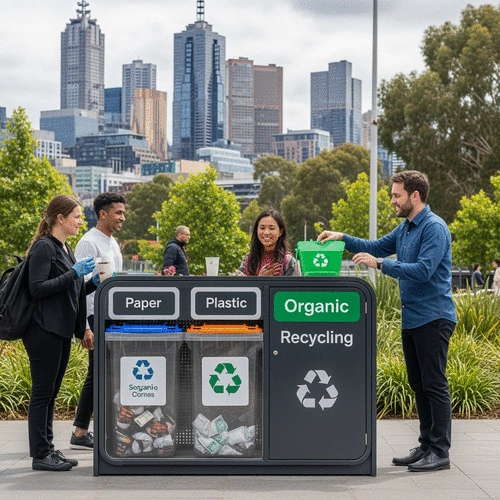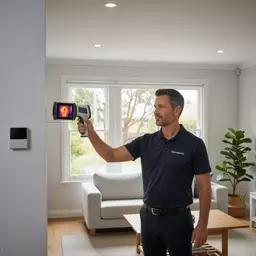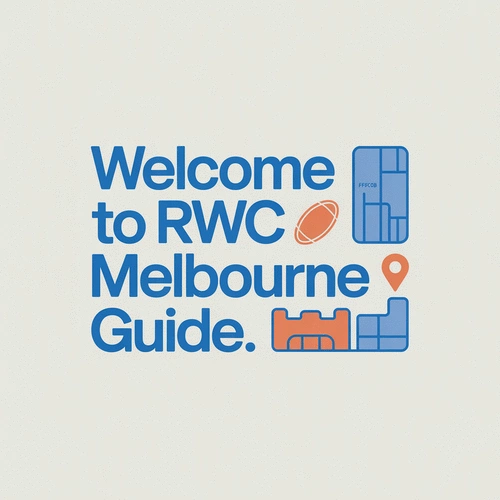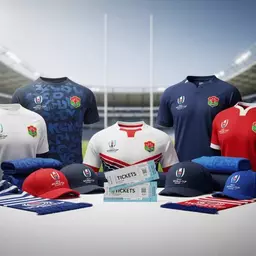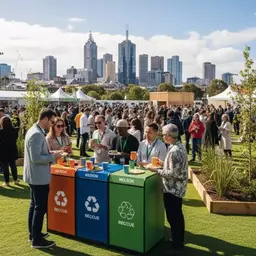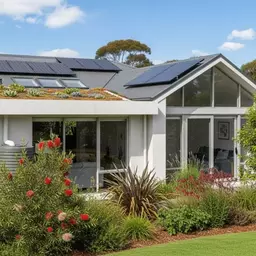What if every small action we take towards sustainability could create a ripple effect, transforming our community? As we embrace the Rugby World Cup excitement, let's ensure our beautiful Melbourne remains clean and vibrant through effective waste management practices.
What You Will Learn
- The critical role recycling plays in reducing Melbourne's environmental footprint and conserving resources.
- How local partnerships and community workshops spearheaded by RWC contribute to successful waste management.
- The importance of understanding Melbourne's kerbside collection system and bin color coding for effective waste sorting.
- How familiarizing yourself with recycling symbols enhances your recycling efforts and reduces contamination.
- The variety of recycling facilities available in Melbourne and the services they provide to residents.
- Composting as a sustainable practice that helps reduce organic waste while enriching local gardens.
Melbourne's Waste Management & Recycling Initiatives
This visual highlights key aspects of Melbourne's waste management practices, emphasizing kerbside collection, recycling symbols, and composting's role in waste reduction. It also touches upon the RWC's involvement in promoting sustainable initiatives. For more on how to enjoy the city, check out exploring Melbourne's neighborhoods like locals.
The Importance of Sustainable Waste Management in Melbourne
Kerbside Collection: Bin Color Coding
- Red Bin: General waste
- Yellow Bin: Recyclables (plastics, cardboard, metals)
- Green Bin: Organic waste (food scraps, garden)
Recycling Symbols: Key Types
- 1 PETE: Plastic bottles & containers
- 2 HDPE: Milk jugs, detergent bottles
- 3 PVC: Pipes & flooring (less common for packaging)
Composting: Role in Waste Reduction
- • Kitchen Scraps: Vegetable peels, coffee grounds, eggshells.
- • Yard Waste: Grass clippings, leaves, small branches.
- • Compost Bin: Essential for managing the process efficiently.
RWC's Role in Sustainability
- • Local Partnerships: With councils for recycling programs.
- • Community Workshops: Educating on waste reduction.
- • Innovative Solutions: Supporting smart bins and tech.
Understanding RWC Melbourne Recycling and Waste Management
As we dive into the vibrant world of RWC Melbourne, it's essential to recognize the environmental impact of waste and the critical role recycling plays in sustainable living. In a city bustling with excitement and events, like the Rugby World Cup, our choices around waste management become ever more significant. Every plastic bottle, paper cup, and food waste item contributes to our overall environmental footprint. By consciously engaging in recycling practices, we can all do our part to reduce this impact and help maintain the beauty of our beloved Melbourne.
Moreover, sustainable waste management not only benefits our environment but also contributes to our community’s health and well-being. By embracing eco-friendly practices, we can foster a more vibrant and clean city, ensuring that future generations enjoy the same experiences we do today.
The Importance of Sustainable Waste Management in Melbourne
In Melbourne, the importance of sustainable waste management cannot be overstated. Each year, we produce an astonishing amount of waste, and without proper management, our landfills become overburdened. That's where recycling comes into play! Through effective recycling strategies, we can reduce landfill contributions and conserve valuable resources.
- Environmental Impact: Recycling helps decrease greenhouse gas emissions and conserves energy.
- Resource Preservation: By reusing materials, we minimize the need for raw resources.
- Community Benefit: Engaging in recycling fosters a sense of community responsibility and awareness.
Understanding these factors reinforces our collective responsibility to support sustainable practices. As we gear up for the Rugby World Cup, it's an ideal opportunity to rally the community around effective waste management strategies!
Overview of RWC's Role in Melbourne's Waste Management
The Reliance Worldwide Corporation (RWC) plays a significant role in enhancing Melbourne's waste management initiatives. Their commitment to sustainability is evident through various community projects aimed at improving recycling rates and reducing waste. One of the standout features of RWC is their collaboration with local councils and community organizations, ensuring that residents are educated about waste management practices.
- Local Partnerships: RWC has partnered with local councils to implement recycling programs that engage residents.
- Community Workshops: They conduct workshops that educate the community on waste reduction and recycling techniques.
- Innovative Solutions: RWC supports initiatives that promote the use of smart bins and other technologies to streamline waste collection.
Through these efforts, RWC is not only transforming waste management practices in Melbourne but also inspiring others to take actionable steps toward sustainability. As we navigate the Rugby World Cup events, let's keep these initiatives in mind and actively participate in making Melbourne a cleaner, greener city. For more insights on how to enjoy events sustainably, read about sustainable tips for event attendance.
Melbourne-Specific Recycling Systems and Practices
Kerbside Collection and Bin Color Coding
Understanding the kerbside collection schedule and bin color coding system is crucial for effective waste sorting in Melbourne. The city has implemented a straightforward system to help residents easily identify how to dispose of their waste correctly. Each bin color corresponds to specific waste types, making it easier for everyone to contribute to the recycling effort.
- Red Bin: General waste that cannot be recycled.
- Yellow Bin: Recyclables such as plastics, cardboard, and metals.
- Green Bin: Organic waste, including food scraps and garden waste.
By utilizing this color-coded system, we can all ensure that our waste is sorted correctly, reducing contamination and increasing the efficiency of recycling programs. Proper disposal habits can significantly enhance Melbourne's waste management practices!
Understanding Recycling Symbols and Their Importance
Recycling symbols found on packaging offer important information about the recyclability of materials. Understanding these symbols is essential to avoid contamination in recycling bins. For example, the familiar triangle symbol indicates that a product is recyclable, but the number inside it denotes the type of plastic, which can impact how easily the item can be processed.
- 1 - PETE: Commonly used for plastic bottles and containers.
- 2 - HDPE: Used for milk jugs, detergent bottles, and more.
- 3 - PVC: Often found in pipes and flooring.
By familiarizing ourselves with these symbols, we can make informed choices about our purchases and recycling habits. This knowledge empowers us to minimize contamination, ensuring that more materials are successfully recycled.
Recycling Facilities in Melbourne: Location and Services
Melbourne boasts several recycling facilities that provide services to residents looking to dispose of materials responsibly. Each facility offers various services, such as drop-off recycling, e-waste disposal, and more. Knowing where these facilities are located can help facilitate proper waste management in our communities.
- Resource Recovery Centres: These centers accept a wide range of recyclable materials and offer education on responsible disposal.
- E-waste Collection Points: Specific locations where residents can safely dispose of electronic waste.
- Community Recycling Events: Regularly scheduled events that encourage recycling and provide resources for residents.
By utilizing these facilities, we can all play a part in keeping our city clean and sustainable. Remember, every little effort counts! Let's make a conscious effort to recycle and reduce waste as we enjoy the excitement of events like the Rugby World Cup.
Composting and Its Role in Waste Reduction
Composting is a fantastic way for Melbourne residents to reduce their waste output and enrich their gardens simultaneously. By composting, we can divert a significant amount of organic waste from landfills, where it would otherwise contribute to greenhouse gas emissions. It’s a win-win situation!
- Kitchen Scraps: Vegetable peels, coffee grounds, and eggshells are perfect for composting.
- Yard Waste: Grass clippings, leaves, and small branches can also be added.
- Compost Bin: Using a compost bin helps manage the process and keeps things tidy!
Starting a compost pile at home is simple and can significantly benefit both our gardens and the environment. As we prepare for the Rugby World Cup, let’s consider how we can incorporate composting into our sustainable practices and contribute to a cleaner Melbourne!
Interactive Poll: Your Recycling Habits
As we strive for a cleaner Melbourne, we want to know: How often do you engage in recycling practices? Let us know your thoughts below!
Summarizing Key Takeaways for Sustainable Living in Melbourne
As we navigate the vibrant landscape of Melbourne, it’s vital to grasp the significance of our local recycling systems and sustainable practices. Understanding how waste management works here not only helps us reduce our environmental footprint but also fosters a culture of responsibility among residents. Engaging with systems like kerbside collection and being aware of recycling symbols are essential steps every Melburnian can take.
Moreover, our community efforts can significantly impact waste reduction. By actively participating in local initiatives and adhering to the principles of the 5 Rs—Refuse, Reduce, Reuse, Repurpose, and Recycle—we can collectively pave the way for a cleaner, greener Melbourne!
FAQs About Waste Management and Recycling in Melbourne
Q: What are the main bin colors for kerbside collection in Melbourne and what do they mean?
A: In Melbourne, the main bin colors are: Red for general waste, Yellow for recyclables (plastics, cardboard, metals), and Green for organic waste (food scraps, garden).
Q: Why is understanding recycling symbols important?
A: Understanding recycling symbols helps residents correctly sort their waste, which prevents contamination in recycling bins and ensures more materials can be successfully recycled.
Q: What role does RWC play in Melbourne's waste management?
A: The Reliance Worldwide Corporation (RWC) partners with local councils, conducts community workshops, and supports innovative solutions like smart bins to improve recycling rates and reduce waste in Melbourne.
Q: How does composting contribute to waste reduction?
A: Composting diverts organic waste like kitchen scraps and yard waste from landfills, reducing greenhouse gas emissions and enriching garden soil, thus promoting a circular economy.
Q: Where can residents find recycling facilities in Melbourne?
A: Melbourne offers Resource Recovery Centres for various recyclables, specific E-waste Collection Points, and regularly scheduled Community Recycling Events to help residents dispose of materials responsibly.
Encouraging Action Towards Sustainable Waste Management
Now that we’re equipped with valuable insights, it’s time to take action! Implementing the practices we discussed can make a real difference. Here are some steps you can take:
- Join local recycling initiatives—Get involved with community programs aimed at improving recycling efforts.
- Educate yourself—Learn more about what items can be recycled and how to sort your waste properly.
- Start composting—It’s a simple way to reduce kitchen waste while enriching your garden soil.
- Support local businesses—Choose establishments that prioritize sustainable practices and green certifications.
Each small action contributes to a greater collective impact. By making conscious choices, we can promote a culture of sustainability in Melbourne! You can also find more information on sustainable building in RWC Melbourne.
Resources and Further Reading on RWC Melbourne Recycling
To deepen your knowledge of recycling and waste management in Melbourne, here are some valuable resources:
- Melbourne City Council's Recycling Resources
- RWC Community Initiatives
- Recycle More - A Guide to Recycling in Melbourne
- Sustainability Victoria: Recycling Information
These resources will provide you with the tools and knowledge needed to engage in effective waste management practices. Together, let’s create a sustainable future for Melbourne!
Recap of Key Points
Here is a quick recap of the important points discussed in the article:
- Environmental Impact: Recycling reduces greenhouse gas emissions and conserves energy.
- Community Engagement: Local partnerships and workshops foster a sense of responsibility towards sustainable waste management.
- Kerbside Collection: Understanding the color-coded bin system is essential for proper waste sorting in Melbourne.
- Recycling Symbols: Familiarizing oneself with recycling symbols helps avoid contamination in recycling bins.
- Composting Benefits: Composting organic waste reduces landfill contributions and enriches garden soil.
- Local Recycling Facilities: Utilize community recycling events and resource recovery centers to responsibly dispose of materials.
- 5 Rs Principle: Embrace the principles of Refuse, Reduce, Reuse, Repurpose, and Recycle to promote a cleaner Melbourne.

